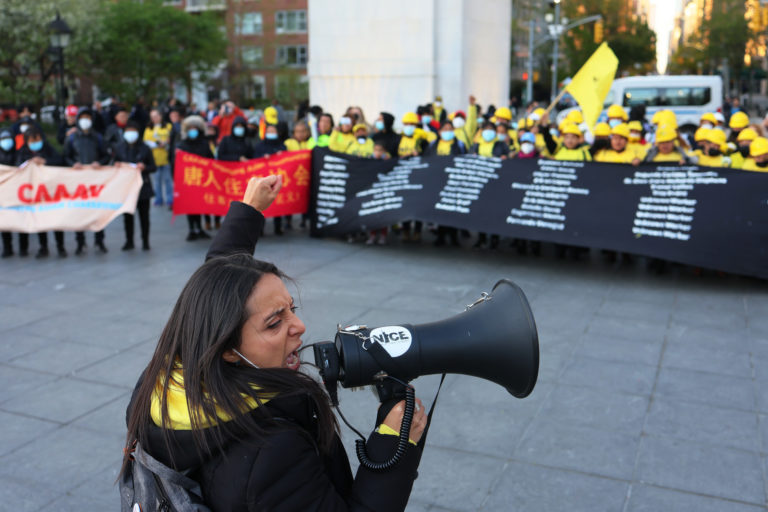Yesterday Representatives Bobby Scott, Stephanie Murphy, and Mark Pocan and Senators Patty Murray and Bernie Sanders announced their introduction of the Raise the Wage Act of 2019. The bill would gradually increase the federal minimum wage from its present rate of $7.25 an hour to $15 an hour by 2024. While minimum wage workers in some parts of the country currently earn more than $7.25 because of state and local laws, twenty-one states still follow the federal minimum. In 2017, the Economic Policy Institute found that a $15 federal minimum wage would immediately benefit 22.5 million people workers, with another 19 million seeing pay hikes as employers adjust rates up across their workforces.
In Bloomberg Businessweek, Josh Eidelson surveys several states where gig economy companies like Uber and Lyft are newly on the defensive after an influential court ruling and electoral shifts across the country last year. In California, the companies are urging lawmakers to reverse the state Supreme Court’s decision in Dynamex Operations West, which adopted the demanding ABC test for classifying workers as independent contractors. In exchange for a weakened standard, contractors in California could receive nondiscrimination protections, a portable benefits system, or some form of workplace representation, though these all mirror rights to which employees are already entitled. While a number of California Democrats, including Governor Gavin Newsom, see value in a potential compromise, some federal Democrats are hoping to make Dynamex’s test the national standard. In the state of Washington, lawmakers are exploring a sectoral bargaining model for contractors, in which representatives of government, management, and workers would set standards for wages and benefits that the state would then adopt into law. And newly empowered Democrats in New York and New Jersey have also pledged to support gig workers and curtail misclassification.
After a sixteen-year fight, the New York State Senate finally passed the Gender Expression Non-Discrimination Act (GENDA) this week. GENDA bars discrimination on the basis of gender identity and expression in employment, housing, and public accommodations. While New York is the birthplace of the modern LGBTQ rights movement, its laws long lagged behind those of other traditionally progressive states. Year after year, Governor Andrew Cuomo and the consistently Democratic State Assembly endorsed GENDA. But the Senate bill, sponsored by Brad Hoylman, was repeatedly blocked by the chamber’s Republican leadership. Now that both the Assembly and the Senate’s new Democratic majority finally passed the bill, GENDA only awaits the Governor’s signature and is almost certain to become law.
Meanwhile, Kansas Governor Laura Kelly’s first official act in office this week was to reinstate LGBTQ anti-discrimination protections for state employees. Former Governor Sam Brownback previously stripped state workers of their rights in 2015. Kelly’s executive order follows similar moves by the governors of Michigan and Wisconsin since they took office this year.
Editorial staff at Slate overwhelmingly approved their first contract about a year after winning recognition of their union in January 2018. The contract includes “annual percentage increases, salary floor increases, severance pay, just cause, paid time off, non-discrimination rules, and a robust commitment to diversity.” Negotiations at the online media company generated attention over the summer when management rejected the staff’s proposal for a standard union security clause, instead maintaining that workers who opted not to join should benefit from representation without paying fees. Management’s refusal to budge motivated a 52-1 vote authorizing a strike in December. The clause appears in the contract approved this week.






Daily News & Commentary
Start your day with our roundup of the latest labor developments. See all
December 18
New Jersey adopts disparate impact rules; Teamsters oppose railroad merger; court pauses more shutdown layoffs.
December 17
The TSA suspends a labor union representing 47,000 officers for a second time; the Trump administration seeks to recruit over 1,000 artificial intelligence experts to the federal workforce; and the New York Times reports on the tumultuous changes that U.S. labor relations has seen over the past year.
December 16
Second Circuit affirms dismissal of former collegiate athletes’ antitrust suit; UPS will invest $120 million in truck-unloading robots; Sharon Block argues there are reasons for optimism about labor’s future.
December 15
Advocating a private right of action for the NLRA, 11th Circuit criticizes McDonnell Douglas, Congress considers amending WARN Act.
December 12
OH vetoes bill weakening child labor protections; UT repeals public-sector bargaining ban; SCOTUS takes up case on post-arbitration award jurisdiction
December 11
House forces a vote on the “Protect America’s Workforce Act;” arguments on Trump’s executive order nullifying collective bargaining rights; and Penn State file a petition to form a union.